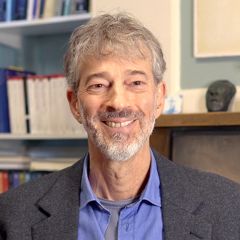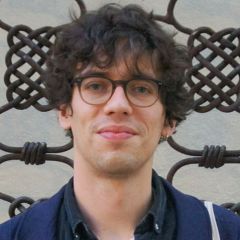English
As an English student in Cambridge you explore literature in English from across the world and throughout history, with an enormous amount of freedom and flexibility in what you read and how you read it. You are able to cultivate your own passions, as well as being guided through new kinds of materials and new kinds of questions.

Course overview
All the way through your studies at Cambridge, you will be exploring different ways of approaching literature, and honing the skills of close reading that will help you understand how texts produce their often strange and powerful effects. This is done partly through a paper (i.e., a module or course) called Practical Criticism and Critical Practice, taught all the way through the degree. Alongside this, you will also be guided through the varied landscape of English literature from the Middle Ages to the present day. Both coursework and written exams play a role in the course, and you are able to choose, within certain parameters, to take more or less coursework depending on what fits best with your style. In the final year of the course, everybody studies a comparative paper on Tragedy that stretches from Ancient Greece to modernity, as well as choosing from a wide selection of optional papers that address different themes and materials, ranging from Renaissance drama to literatures of the Global South, from the medieval literature of the supernatural to twentieth century cinema.
For more information about the course and its modules, visit the University website.
I wouldn’t be a writer without King’s, but that is because at King’s I studied 500 years’ worth of literature and that is what made me a writer. (Zadie Smith to Varsity, 2024)
What is it like to study English at King’s?
At King’s College we value the opportunity to learn from each other. With a mix of ‘supervisions’ (one-hour sessions with a supervisor and around two students) and classes, we explore topics and texts together in ways that respond both to people’s individual interests and to new questions in the field of English Studies, as well as those texts and ideas we feel we can’t do without. A typical supervision would consist of the supervisor sending some material to read in advance, which we discuss together in the supervision. Often, you would write a short essay in preparation for the supervision, which is a great opportunity to practise and experiment with the skills of critical writing and analysis. A typical class would consist of a wide-ranging discussion of specified reading, in a group of six or seven students alongside the supervisor. There are also lectures and seminars that take place in the Faculty of English, which introduce you to different critical ideas and perspectives, and help you make the most of the texts and topics you explore in the supervisions.
At King’s College we like to experiment with new ways of exploring English as a subject. In recent years these explorations have included: a visit to a British Library exhibition about medieval women and their books; a trip to a production of The Tempest in the Sam Wanamaker Theatre; a screening and discussion of a documentary about the attempt to stage a production of Hamlet within the video-game Grand Theft Auto. We use events like these to draw the King’s English students together in discussion across the three year-groups.
Part of what makes King’s College an exciting place to think about writing and culture is that there is a lively community of students exploring their own ideas and developing a variety of initiatives outside the bounds of the course, as creative writers, visual artists (making use of the college art room), as well as through their involvement in activities such as student drama, journalism, and activism.
Typically there are six to seven students studying English in each year at King’s.
What do we look for in an applicant to English?
Students of English are all different, but they share certain qualities: curiosity; a strong interest in the arts and humanities (of course you need to be a keen reader of literature, but our students often also love other kinds of writing, film, music, drama, creative writing, and dance, or are also drawn to philosophy, theology, sociology, history, critical thinking, and so on); attention to nuance and to detail; the ability to see patterns and their exceptions, to make connections and to consider implications; and the capacity to build and write arguments in response to different kinds of prompts. Beyond this, we look for an openness to the potentially transformative encounter with the things you read; a willingness to look at things from different angles without losing the sense that your own perspective is valuable; an enjoyment of learning and thinking.
Although we are looking for applicants who are keen readers and thinkers about texts, there is no specific reading that we expect applicants to have completed in order to apply or before the interview. We are interested to hear at interview about your own individual reading interests.
Requirements
A Level: A*AA
IB: 41-42 points overall with 7, 7, 6 at Higher Level
Subject requirements: English Literature (if not available, we accept English Language and Literature)
Admissions assessment: Yes
Written work: 2 pieces
Admissions assessment
The Cambridge English Literature Admissions Test (CELAT) asks you to choose two short texts from a selection and then to write an essay comparing or contrasting them in any way that seems interesting to you, paying particular attention to distinctive features of structure, language and style. The aim of the test is to see how you respond to new material, including what you notice, how you can think through the importance of your observations, and how you can put your ideas together on the page. There is no specific prior knowledge of literature that we are expecting you to have and you do not have to write your answer in any particular style.
It might help your confidence to do some practice of this kind of activity before the test. Even just informally tasking yourself with noticing as much as you can in the texts that you are reading anyway will help you to feel ready for the test.
We will contact those who are invited to interview with the assessment arrangements.
Written work
Please submit two pieces of work that you have already written and had marked at school or college, ideally in the subject of English Literature or Language. If necessary, a piece of work from another humanities subject could be submitted alongside one from English.
The application process is designed to help us to learn about you, your ideas, and your writing and thinking abilities, and your written work helps to show us how you are working at the time of application. There is no need to write anything specific or to correct or improve work you submit.
What is the best thing about studying English at King’s?
‘I'd say that the best thing about English is the way that we learn, not just about literature, but about ways of seeing and interacting with the world: we learn how to articulate and defend complicated literary ideas, and thus become good at deconstructing our own opinions, and navigating complicated interactions beyond the literary world.’
(Teddy, 3rd year)
‘For me, the best thing about English at King's is its open atmosphere. In supervisions and classes alike, your ideas are thoughtfully engaged with and treated with real seriousness which create discussions that are both open and intellectually stimulating. Of course, there’s a real sense of academic rigour, but also encouragement to challenge yourself and develop your own voice in a supportive environment.’
(Gaurika, 2nd year)
A top tip for applicants to English at King’s
Follow your curiosity. Read widely, and aim to think for yourself about what you read: challenge it, explore it, be inspired or angered by it. If you’re unsure of something, look it up and find out about it. Start to build up your understanding and knowledge by making connections between everything that you encounter, in school or college certainly, but also in your wider lives, hobbies, and communities.
People
The Directors of Studies for 2025-2026 are Dr Phil Knox (Part IA and Part IB) and Prof. David Hillman (Part II).


